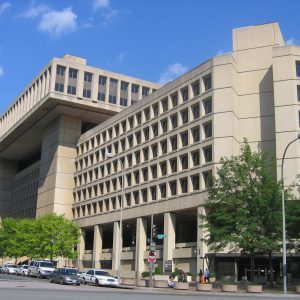DOJ Releases 38-Page Redacted Affidavit Related to Search of Trump’s Mar-A-Lago
The U.S. Department of Justice on Friday released a redacted version of a 38-page affidavit that supported the FBI raid of former President Donald Trump’s Mar-a-Lago estate in Florida earlier this month.
Though the DOJ heavily redacted the affidavit, it revealed that the agency’s review of 15 boxes of materials that Trump turned over to the National Archives in January a year after leaving office prompted the FBI’s search of Mar-a-Lago in Palm Beach.
The boxes that Trump had retained contained documents marked “top secret,” which were subject to the highest level of national security restrictions, barred from being “released in any form to foreign governments, foreign nationals, foreign organizations, or non-U.S. citizens without permission of the originator.”
The affidavit said the Justice Department sought to search Mar-a-Lago due to concerns that Trump’s retention of highly classified documents could compromise “clandestine human sources”—people working in the intelligence community who collect information from around the world for the U.S. government.
“There’s absolutely no good reason for Trump to have” such materials at Mar-a-Lago, said Citizens for Responsibility and Ethics in Washington (CREW), “but many bad reasons.”
The affidavit states that “there is probable cause to believe that additional documents that contain classified [national defense information] or that are presidential records subject to record retention requirements currently remain at the premises. There is also probable cause to believe that evidence of obstruction will be found at the premises.”
The DOJ requested the redaction of about half of the content of the pages to protect its investigation into whether Trump violated the Espionage Act by retaining national security documents.
“First and foremost, the government must protect the identity of witnesses at this stage of the investigation to ensure their safety,” DOJ lawyers wrote in a memo regarding their redaction requests.
Witnesses in the investigation could face “retaliation, intimidation, or harassment, and even threats to their physical safety,” they added.
Based on what Trump handed over to the National Archives in January, the FBI agent who signed the affidavit wrote, “probable cause exists to believe that evidence, contraband, fruits of crime, or other items illegally possessed in violation 18 U.S.C. §§ 793(e), 2071, or 1519 will be found at the premises.”
Noah Bookbinder, president of CREW, noted that the affidavit describes extensive discussions between the DOJ and Trump’s team regarding the documents that the FBI believed were still at Mar-a-Lago, prior to the raid on August 8.
“This was clearly not a search done lightly or precipitously,” said Bookbinder. “There were ample opportunities for Donald Trump’s team to work this out quietly. This was a last resort.”
Trump pushed for the release of the affidavit, but as CREW tweeted Friday, “If Trump thought getting the Justice Department‘s Mar-a-Lago search affidavit released would be good for him, he was sorely mistaken.”
Originally published at Commondreams.org.












